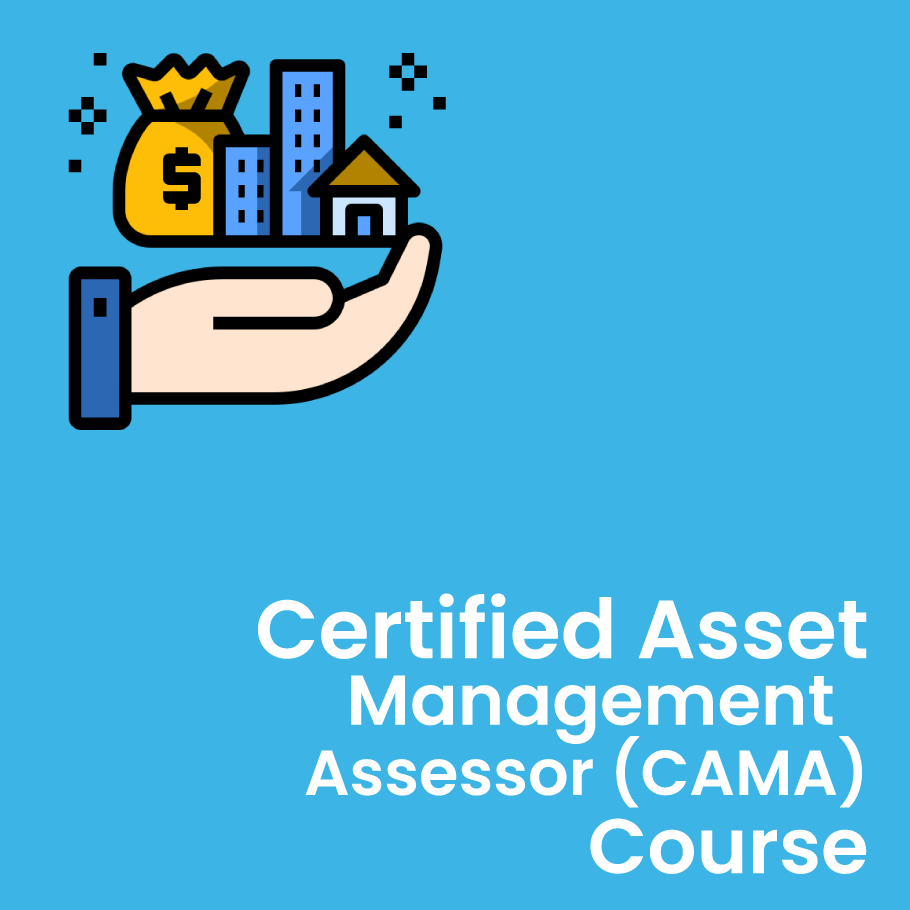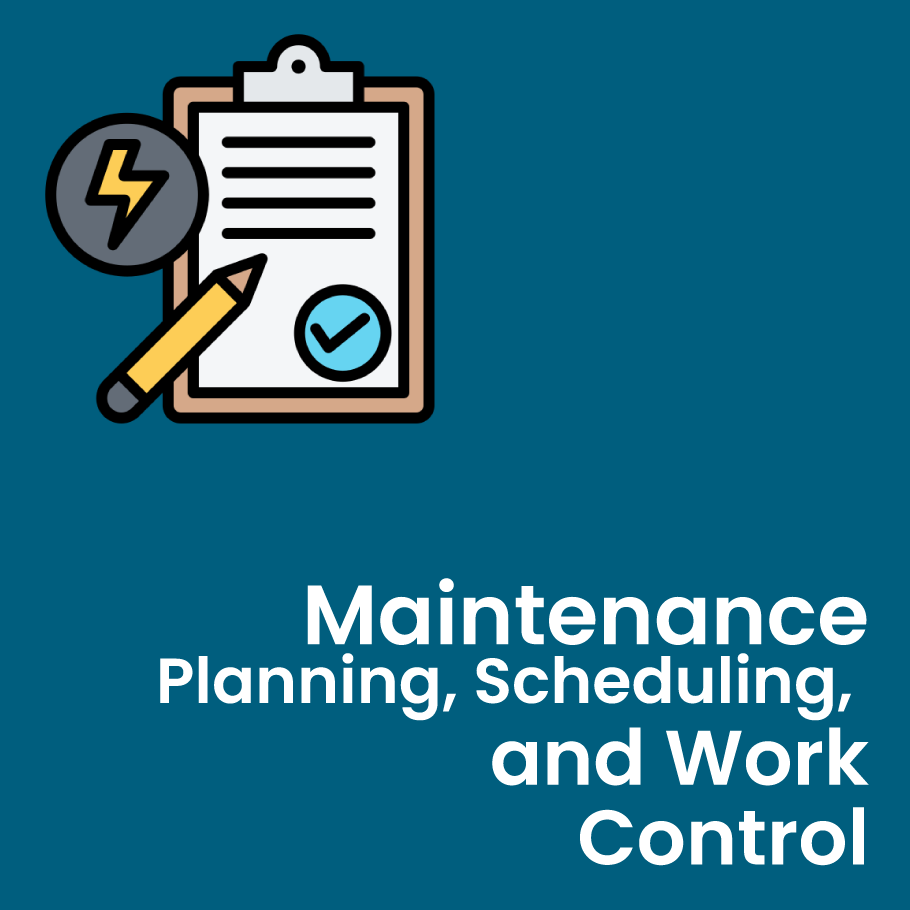In a world striving for cost optimization and operational excellence, Maintenance Planning and Scheduling have a great role to achieve these goals. Maintenance Planning and Scheduling are the main tools for balancing operational and maintenance efficiency with operation and maintenance costs, maximizing the efficient use of work time, material, and assets, and it can increase workforce productivity from 25% to about 60% “tools in hand”.
Richard D. Palmer said in his handbook, which is a main reference for Maintenance Planning and Scheduling: “One cannot discuss maintenance planning without first considering an overall perspective of maintenance itself”. Therefore, the course will start with explaining the main maintenance aspects such as definition, where maintenance is in the asset lifecycle, main types/strategies and their advantages/disadvantages, techniques, technologies, best practices, cost, spare parts, KPIs, Excellence, etc.
The course will explain how to build an effective maintenance planning function to play its great role in planning, scheduling, and coordinating maintenance work; this will cover the main relevant aspects such as Maintenance Planning and Scheduling definitions, objectives, benefits, business processes, roles and responsibilities, techniques, tools, plans, methodologies, KPIs, etc.
Course Objectives:
- To give a broad understanding of maintenance and its relevant aspects
- To help understand how to select the most cost-effective maintenance strategy for each asset to control its risks and costs
- To give a comprehensive view of the importance, objectives, and benefits of the maintenance planning and scheduling process for saving time, cost and efficient utilization of the maintenance resources to maximize the productive time of the manpower
- To explain the fundamentals of planning and scheduling, such as concepts, processes, tools, techniques, methodologies, roles and responsibilities, KPIs, analysis, reporting, etc.
- To explain the important role and functions of the Computerized Maintenance Management System (CMMS) as a main Maintenance Planning and Scheduling tool
- To explain in detail the planning, scheduling, and work management processes, including:
Work identification and prioritization, creating work requests/work orders, quality control of work requests and data, work packaging, scheduling regular meetings, materials and logistics preparation, work coordination, resources preparations, and effective utilization, safety aspects of work execution, proper work orders completion, backlog definition and management, maintenance performance measuring (KPIs), work orders closing, history data analysis for enhancement and closing the loop. - To highlight the importance of Spare parts and Inventory Management
- To give an overview of Project Management techniques as important tools for Maintenance Planning and Scheduling
- To highlight the types of KPIs (leading and lagging), main maintenance and maintenance planning KPIs, and benchmarking against relevant world-class best practices
Specially Designed for:
This course is relevant to mid-career professionals and senior managers from varied disciplines, including:
- Maintenance Planning (Planners, Schedulers, Engineers, Leaders, and Managers)
- Maintenance (Engineers, Supervisors, Section Leaders, Team Leaders, and managers)
- Reliability (Engineers, Section Leaders, Team Leaders, and Managers)
- Integrity (Engineers, Section Leaders, Team Leaders, and Managers)
- Operation (Engineers, Section Leaders, Team Leaders, and Managers)
Course Outline:
Day 1 - Understanding Maintenance First (What We Plan and Schedule)
- Introduction and Pre-evaluation
- Where is Maintenance in the Big Picture?
- Main Maintenance Types and Strategies
- Reactive Maintenance
- Run to Failure Maintenance
- Corrective Maintenance
- Preventive Maintenance (PM)
- Condition Based Maintenance (CBM)
- Predictive Maintenance (PdM)
Day 2 - Methods and Tools in Maintenance & Understanding Maintenance Planning and Scheduling
- Maintenance Strategy Selection Methodology
- Asset Criticality Assessment/Analysis as a key tool for Maintenance Strategy selection
- Understanding Maintenance Planning and Scheduling
- Definitions
- Difference between Planning and Scheduling
- Main Objectives of Maintenance Planning & Scheduling
- Maintenance Planning and Scheduling Process
- The Six Maintenance Planning Principles
- The Role of the Maintenance Planner
- The Six Maintenance Scheduling Principles
- The Role of the Maintenance Scheduler
- Necessary Elements for Planning & Scheduling
- Planning System Necessities
Day 3 - Maintenance Planning and Scheduling (cont.), CMMS & Work Management
- Tools Necessary for Effective Maintenance Control System
- Computerized Maintenance Management System (CMMS) as a main Tool for Maintenance Planning and Scheduling and Work Management
- Difference between CMMS and AMS/EAM
- CMMS Objectives and benefits
- CMMS main modules and functions
- CMMS Failure Codes
- Work Management
- Backlog Management
- Standardized Maintenance Work Management Process
- Step-1 Work Identification and prioritization
- Step-2 Work Planning
- Step-3 Work Scheduling
- Step-4 Work Execution
- Step-5 Completing the Work
- Step-6 Review and Improve
Day 4 - Spare Parts Management, Key Performance Indicators (KPIs), and Benchmarking
- Spare Parts Management and Optimization
- MRO Spares Management
- Planning, Scheduling and Materials Management
- Spare parts procurement process
- Basics of inventory management
- Key Performance Indicators (KPIs)
- KPIs definition and Objectives
- Leading and Lagging KPIs
- Types of Planning and Maintenance Key Performance Indicators (KPI)
- Examples of Important Key Performance Indicators (KPIs)
- Benchmarking against the Industry Best Practices
- What is Benchmarking?
- What are the objectives of Benchmarking?
- Examples of world-class benchmarks
- Post Course Evaluation
| Course Name | Maintenance Planning, Scheduling, and Work Control |
| Course Duration | 4 days |
| Course Language | English |







